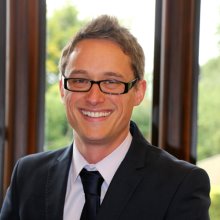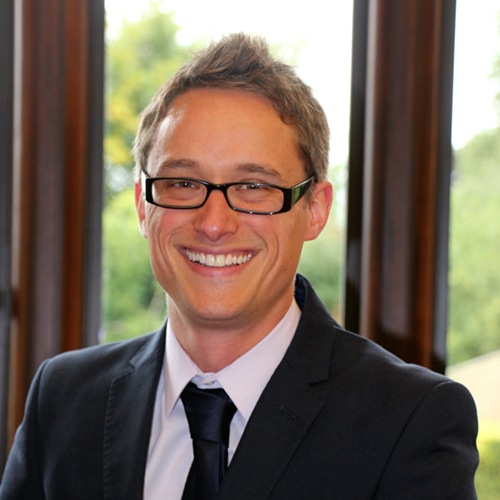
This week, we had A Conversation With… Mr Dimmick, our current Head of Computer Studies and resident YouTuber. He joined Shiplake College in November 2014. He started as a Computing and ICT teacher and was soon put in charge of developing the School’s Digital Literacy programme. He then became Head of Computing Studies in September 2018.
What does your average day entail?
Well, if it is a Monday, I start the day by playing organ in Senior Chapel, but any other day usually starts with a cup of tea followed by a packed day of teaching Computer Science and Digital Literacy to all year groups. After lessons on Tuesdays, I run the Debating Club, and on Fridays, the Coding Club. I assist Mr Bayley with our joint DT/Computing Maker Club for Lower School on Wednesday afternoons as well. After these, I will then either sit down to mark work and prepare for the next day, run an academic support clinic or, if it’s one of my two duty days, head over to Welsh House for early-evening duty.
How far has the field of Computer Science come in the last decade?
The last decade has seen an explosion in Computer Science. Not just in the development of the discipline in terms of Bid Data, Artificial Intelligence and Machine Learning, Augmented and Virtual Realities, the Internet of Things and connected devices and Big Data, but also in the way that schools have embraced the subject and how it is now seen as an increasingly popular (and vital) subject for pupils to study. We have completely revamped how we approach teaching Computing and Digital Literacy at Shiplake, starting at Year 7 and working all the way up to Year 13, to ensure that our pupils have the opportunity to develop the knowledge and skills that they need to navigate the digital world that we all now inhabit.
Why is it so important to be teaching young people Computer Science and Digital Literacy?
Computer Science and Digital Literacy each teach a different aspect of Computing. A helpful analogy is to think of Computer Science as learning to become a car mechanic or a car designer, where a deep understanding of the internal parts and how they can work together is needed in order to produce an efficient and functional vehicle, and keeping it working at an optimal level. Digital Literacy is the complementary discipline of learning to drive the car, both effectively and safely.
Rightly or wrongly, our world is increasingly influenced and driven by the development of technology and the companies that operate them. Computer Science gives pupils an understanding of how these systems work and, therefore, how to ensure that they are being utilised to our benefit. Equally, Digital Literacy equips pupils with the skills required to make the most of the opportunities afforded by this digital, online world, where anyone can produce and publish content to a worldwide audience and do so safely.
What is your favourite aspect of life at Shiplake?
The people. The staff and pupils make Shiplake a great place to work. But of course, we enjoy wonderful surroundings and the food is amazing!
Why do you use YouTube to talk about your subject?
I started to use video as a means of teaching early on in my time here. It quickly became apparent that, when teaching skills (I think I was making websites at the time), everyone works at a different pace and, sometimes, pupils benefit from seeing me demonstrate something more than once. It quickly dawned on me that if I were to make videos showing how to complete each mini-task or skill then pupils could watch these back as many times as they needed until they were confident in what they were being asked to do. Equally, those who mastered the skill more quickly could press ahead to the next video without waiting for others. Once I had a few videos, I decided to publish them on YouTube, simply as an easy was of storing them and sharing them with pupils. Since then, my YouTube videos have been found and used by schools around the world, and I regularly receive comments from pupils and teachers who have found them helpful. My channel typically receives 12,000 views a month, with over 30,000 minutes of content being consumed and I recently hit the 1000 subscribers mark – something my pupils seem to think is mildly impressive.
What revision tips would you give to pupils studying Computer Studies?
Start early! Seriously, start in Year 10. Whenever you cover a new topic in a lesson, you should be going home and seeing what you can remember from it. I’m a big believer in active revision. By that, I mean that revision is at its best when it involves doing something, ideally creative. My Year 11 pupils are getting quite used to making mind maps at the start of each of our revision lessons and it’s amazing how much of the course content you can pack into a single page. I love mind maps as they give pupils the opportunity to create connections between concepts that result in deeper learning. We then follow this up with completing past exam questions related to that topic. Ultimately, nothing really beats past questions in terms of preparing oneself for the experience of sitting a paper.
But, as I say, when it comes to personal revision I’d encourage pupils to be as creative as possible. They might want to make a poster, or record a video or podcast on a topic – no one ever has to hear it! Whatever someone does for revision, it has got to involve more than simply reading a textbook or watching a YouTube video (yes, I did say that!). Use these as part of the process, but then get on and do something that requires you to put into practise what you have been reading/watching/learning.
What does the future hold for Mr Dimmick?
Ah, now, that would be telling! But I certainly plan to enjoy the stunning views and delicious food here for quite a while longer!





















